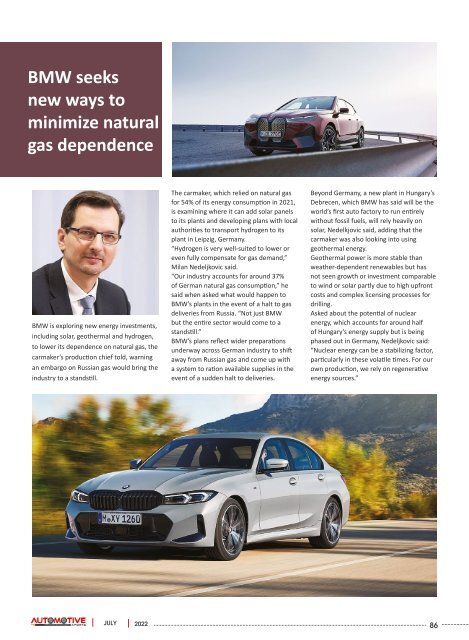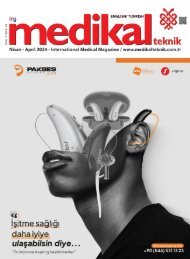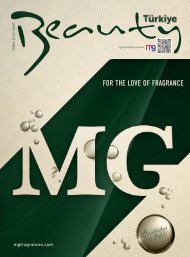You also want an ePaper? Increase the reach of your titles
YUMPU automatically turns print PDFs into web optimized ePapers that Google loves.
BMW seeks<br />
new ways to<br />
minimize natural<br />
gas dependence<br />
BMW is exploring new energy investments,<br />
including solar, geothermal and hydrogen,<br />
to lower its dependence on natural gas, the<br />
carmaker’s production chief told, warning<br />
an embargo on Russian gas would bring the<br />
industry to a standstill.<br />
The carmaker, which relied on natural gas<br />
for 54% of its energy consumption in 2021,<br />
is examining where it can add solar panels<br />
to its plants and developing plans with local<br />
authorities to transport hydrogen to its<br />
plant in Leipzig, Germany.<br />
“Hydrogen is very well-suited to lower or<br />
even fully compensate for gas demand,”<br />
Milan Nedeljkovic said.<br />
“Our industry accounts for around 37%<br />
of German natural gas consumption,” he<br />
said when asked what would happen to<br />
BMW’s plants in the event of a halt to gas<br />
deliveries from Russia. “Not just BMW<br />
but the entire sector would come to a<br />
standstill.”<br />
BMW’s plans reflect wider preparations<br />
underway across German industry to shift<br />
away from Russian gas and come up with<br />
a system to ration available supplies in the<br />
event of a sudden halt to deliveries.<br />
Beyond Germany, a new plant in Hungary’s<br />
Debrecen, which BMW has said will be the<br />
world’s first auto factory to run entirely<br />
without fossil fuels, will rely heavily on<br />
solar, Nedelkjovic said, adding that the<br />
carmaker was also looking into using<br />
geothermal energy.<br />
Geothermal power is more stable than<br />
weather-dependent renewables but has<br />
not seen growth or investment comparable<br />
to wind or solar partly due to high upfront<br />
costs and complex licensing processes for<br />
drilling.<br />
Asked about the potential of nuclear<br />
energy, which accounts for around half<br />
of Hungary’s energy supply but is being<br />
phased out in Germany, Nedeljkovic said:<br />
“Nuclear energy can be a stabilizing factor,<br />
particularly in these volatile times. For our<br />
own production, we rely on regenerative<br />
energy sources.”<br />
JULY <strong>2022</strong> 86

















